‘Why Should We Be Dumb?’ How One Monk’s Speech Changed The History of Ladakh
Did you know, there was not a single mention of Ladakh, an area that covers nearly 40% of the state, in the first Kashmiri Budget speech?
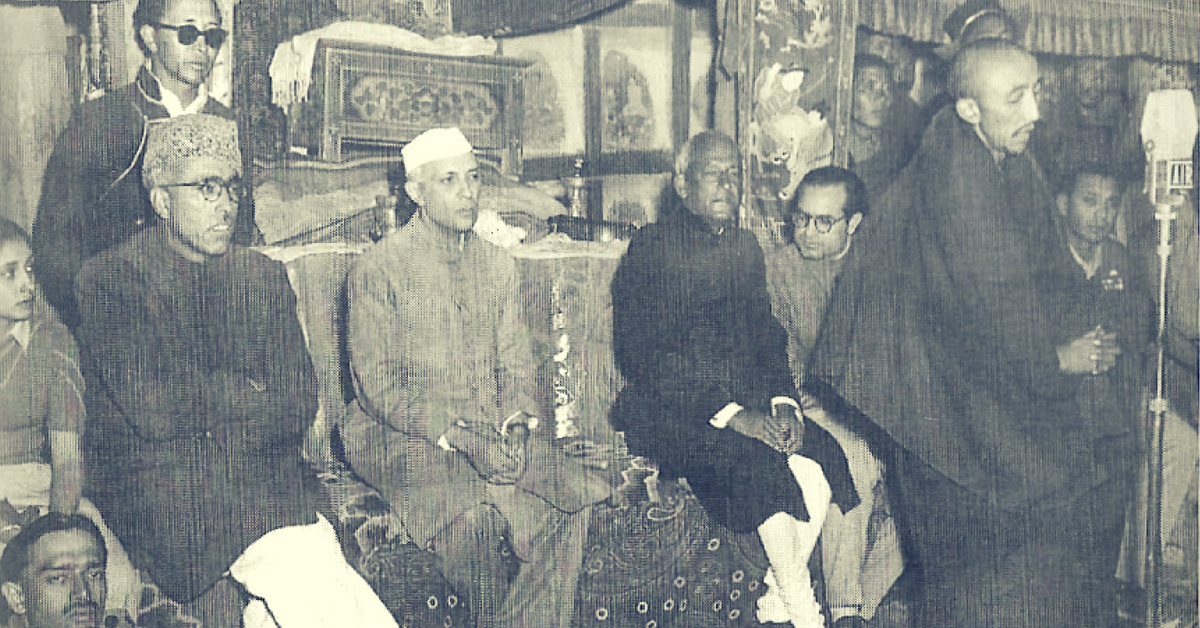
Public discourse on Jammu and Kashmir is often relegated to the Kashmir Valley and its neighbouring Jammu region. Ladakh, which makes up nearly 40% of the state’s area, is little discussed. Its political aspirations are almost never considered.
When the last Dogra king, Maharaja Hari Singh, signed the Instrument of Accession with India on October 26, 1947, Ladakh came under the administrative control of the new state of Jammu and Kashmir. Unlike Kashmir, Ladakh has always shared a close bond with the Indian Union.
In this bond, Kushok Bakula Rinpoche, a prominent Buddhist monk, statesman, international diplomat, and the ‘Architect of Modern Ladakh’, lead the way.
Inspired to join politics after a meeting with India’s first prime minister, Jawaharlal Nehru, in 1949, Rinpoche made his first significant splash not just state politics, but on a national level, with a historic speech on May 12, 1952, a month after Jammu and Kashmir Prime Minister Sheikh Abdullah presented his government’s first annual budget proposal to the J&K Constituent Assembly.
Also Read: From Monk to Statesman: Here Is an Indian You May Not Have Heard Of!
The speech was the first affirmation of Ladakhi identity in the Indian political sphere.
To the uninitiated, the Jammu and Kashmir Constituent Assembly was established by Dr Karan Singh, the son of Maharaja Hari Singh and then Sadr-e-Riyasat (similar to the post of Governor), in 1951.
It was tasked with drafting the new constitution for the State and settling once and for all the unclear status of the Kashmir Valley, vis-à-vis India, Pakistan, or full independence. The Constituent Assembly at the time also doubled up as the State legislature, and Bakula Rinpoche was elected as a member representing the Buddhist community of Ladakh.
Rinpoche decision to join the Constituent Assembly were premised on the belief that they would address Ladakh’s problems.
Ravaged by the war between India and the Pakistani tribal raiders in 1947, decades of economic exploitation at the hands of the erstwhile Dogra kingdom, and its geographic isolation, Ladakh was a region in desperate need of state assistance.
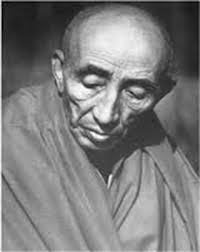
Making matter worse for Ladakhis were the communal and corrupt attitudes of the Kashmiri officials stationed in the region.
Thus, when Sheikh Abdullah presented his government’s budget, expectations were high that the new democratic government would now begin the healing process by making some positive efforts to iron out its biases and develop all three regions of the state on a fair and equitable basis.
Rinpoche, however, was in for a rude shock. There was not a single mention of Ladakh, an area that covers two-thirds of the state, in the Kashmiri leader’s Budget speech.
“There was not a single specific proposal for Ladakh, and neither did it even merit a passing mention in the context of the broader state-wide initiatives. It was a shocking blow and a great disappointment for Rinpoche, confirming all of his people’s worst fears.
“Government officers would continue to exploit the people, taking taxes and giving nothing in return. Ladakh would still be in a subservient relationship to colonial masters – only the masters have changed. There was considerable anger and bitterness about this among Ladakhis,” writes Sonam Wangchuk, in a book titled ‘Kushok Bakula Rinpoche: The Architect of Modern Ladakh’.
Rinpoche felt he had to do something about it. He reached out to an old friend and renowned scholar on Ladakh, Pandit Shridhar Kaul Dulloo, whom he fondly referred to as ‘Masterji’.
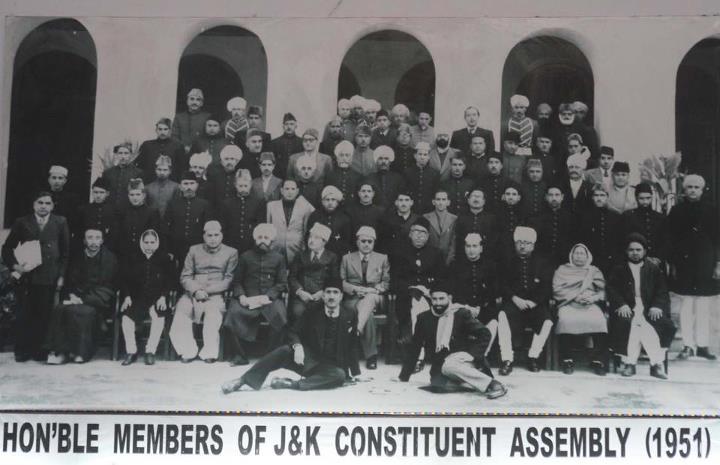
Together they sat and discussed the issue at length. After their discussion, both Masterji and Rinpoche decided that the best mode of action would be to “make the strongest and most public gesture of protest possible, and let their dismay be known to not only Sheikh Abdullah and the National Conference, but to the media and the world,” writes Wangchuk.
Thus, Rinpoche decided to approach the Speaker of the house to address the chamber on the provisions of the proposed budget in his mother tongue Ladakhi, which is a dialect of Tibetan known officially as Bodhi. Following the speech in Ladakhi, the English translation would be read out.
“Ladakhi and Tibetan were the only languages he (Rinpoche) knew. But the symbolism was tremendous. It was the first time that Ladakhi had been heard on the floor of the assembly. Surely, in a democratic country, while representatives can speak in English or Hindi, they should also use their native tongue in their dealings with the government,” writes Wangchuk.
When Rinpoche rose on the floor of the Assembly to give his speech, Sheikh Abdullah and fellow members of the National Conference thought that he would merely offer his vote of thanks to the government and sing their praises since he arose from the treasury benches.
Nothing could have been further from the truth.
Rinpoche began by articulating his utter disappointment with the Budget.
“If the Budget estimate is read from one end to the other, no mention of Ladakh is found anywhere in it. What to speak of the economic and other requirements of Ladakh, which being so urgent and necessary, merit prompt attention for their fulfilment? No mention is found with regard to education facilities in Ladakh,” Rinpoche said.
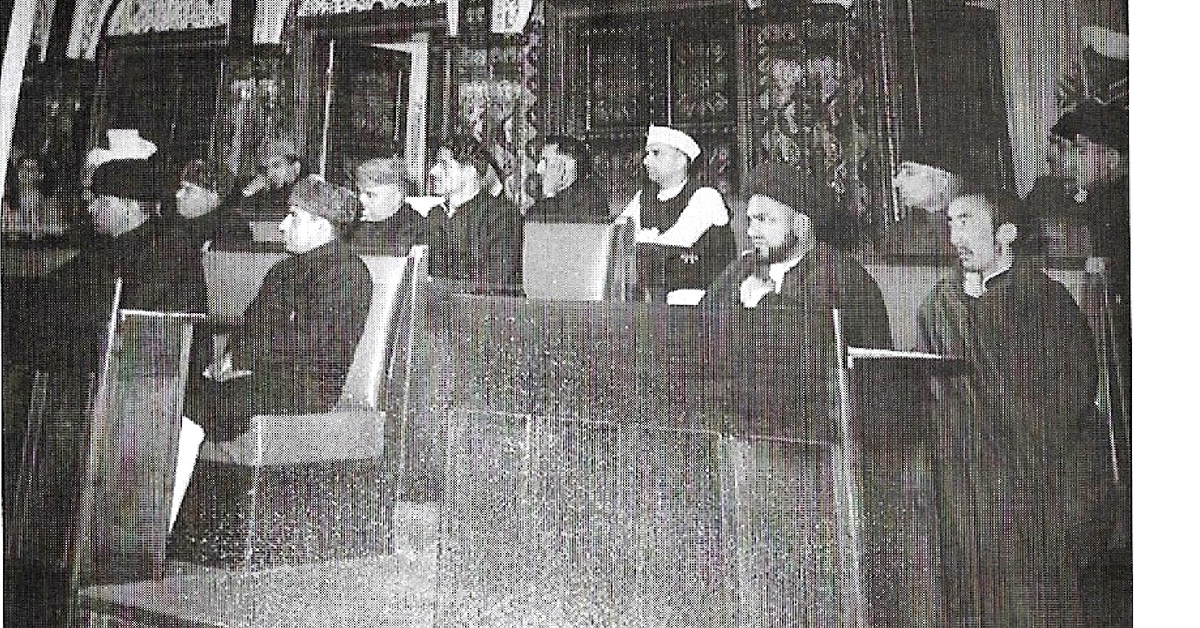
Among other aspects of education, Rinpoche spoke of the imposition of Urdu as the medium of instruction in school curriculum with no provisions made for the promotion of the Ladakhi language. “This unnatural medium of instruction proves to be a great stumbling block in the educational development of our children,” Rinpoche said.
After education, he went onto bemoan the lack of any government assistance for refugees from the Zanskar region driven out of their homes by Pakistani tribal raiders in the ’47 War, who were now begging on the streets of Kullu in Himachal Pradesh.
“The economic development of our area has not come to the thought budget makers because there is no mention of it even by mistake in the budget,” said Rinpoche.
For example, the Budget had earmarked Rs 25 lakh for the construction of new canals in the State, but no mention was made of constructing even small canals for the thousands of acres of dry land in Ladakh.
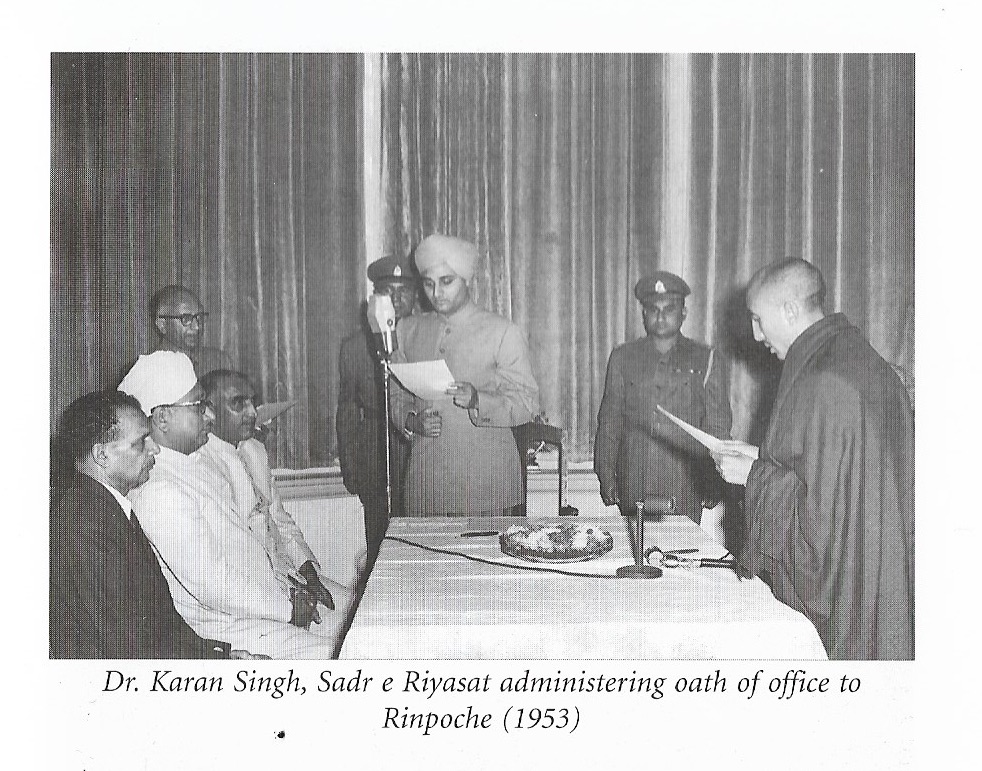
Another issue Rinpoche raised was the scarcity of road infrastructure in the region, and the lack of impetus given to the development of “our own means of communication and transport”. Not even a hint of establishing better road connectivity was made in the estimates.
However, the most stinging criticism came when Rinpoche responded to allegations that any criticism of the Kashmiri administration by Ladakhis is the work of outside forces. He said:
When we are oppressed by starvation, you may kindly tell whether we need someone else to convince us that rats are running in our stomachs. When a supply of cloth is sent to us from Srinagar and out of the same, not a piece is available to us, and we roam about naked, at that time, do we need a sermon from someone from outside that we are shivering from cold and burning from heat?
From Srinagar, a stock of kerosene oil is dispatched to us. But it is not known where the stock is spent, whether this goes to the black market or how it is used. But the fact, which appears, is that even at this time we are required to buy every bottle of kerosene oil at an exorbitant price. Even in such circumstances, to understand as to what price we have to pay for any article, would we need lessons from outsiders?
From us, land revenues are realised at rates that have not been heard of even in the worst of extortionist times. And we are crushed under the burden of this rate. Then, at times our cries of agony are echoed in the air. Is this voice, this cry also that of outsiders? Is this the expression of other people’s sentiments?
Towards the end of his speech on the floor of the Assembly, Rinpoche says rather poignantly, “The world has completely awakened and is fully giving expression to its individuality. Then why is it being hoped that the people of Ladakh will go on sleeping and be dumb?”
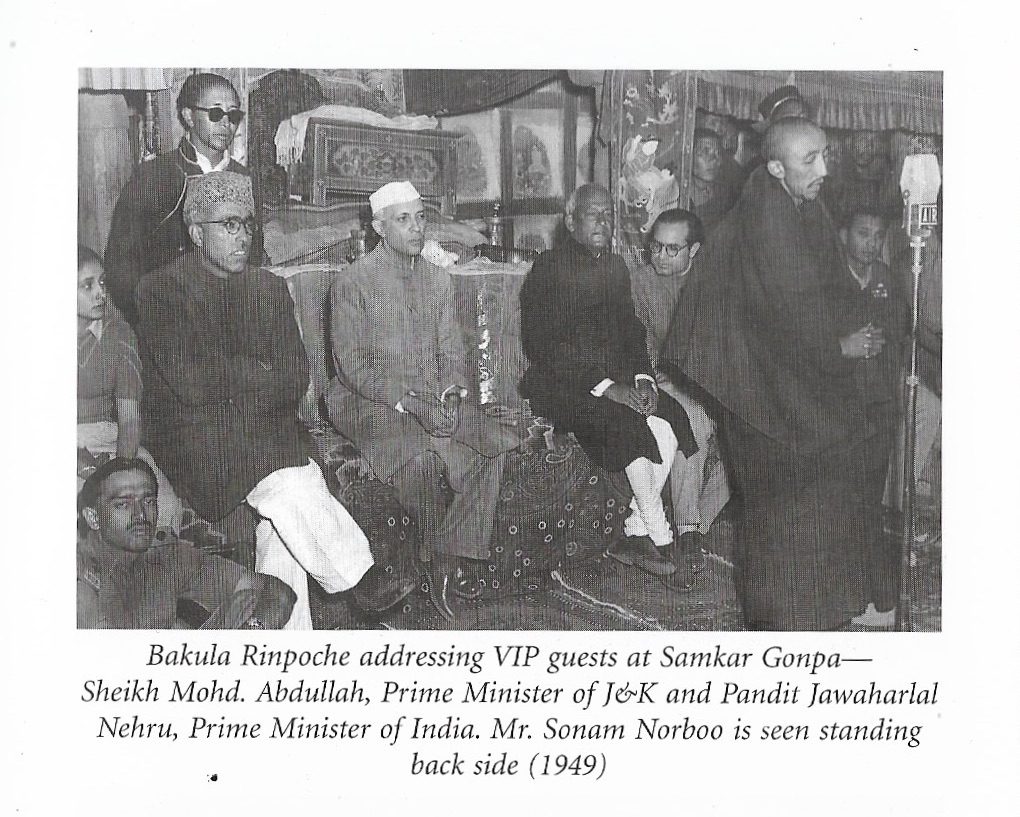
Since the speech was initially made in Ladakhi, no one in the Kashmiri leadership understood the contents of the statement. Funnily enough, whenever a reference to ‘Jenab’ (honourable) Sher-e-Kashmir Shiekh Abdullah was made, members of the treasury bench thumped their desks in approval thinking that Rinpoche was singing the praises of the administration.
Rinpoche recalled that he felt a tad awkward whenever the treasury bench would thump their desks in unison but carried on nevertheless. It was only when the English translation was read out that they began to realise the contents of his scathing critique.
Upon hearing English translation, Sheikh Abdullah was reportedly outraged and demanded that the English translation of Rinpoche’s speech be expunged from the parliamentary record. However, Speaker GM Sadiq let the statement run in its entirety, unwilling to accede to the treasury bench’s protests.
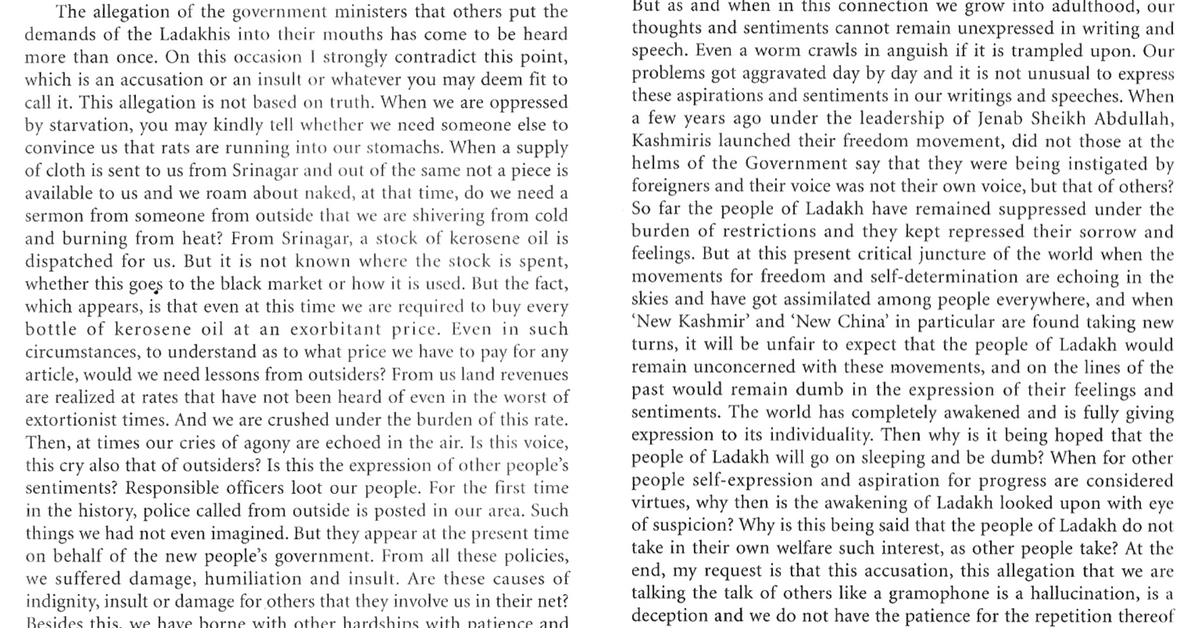
Abdullah was convinced that the translation was grossly inaccurate and should be disqualified. However, Sadiq responded that Rinpoche himself had delivered the translated version.
Although the substance of the translated speech was accurate, Masterji had “brought a certain colourfulness of language and expression,” which evidently enraged the Sheikh and his clique.
Meanwhile, Masterji had already begun to distribute copies of the translated speech to reporters outside, and it received extensive coverage in the national press much to the embarrassment of the Kashmiri regime.
This was even more embarrassing for the Sheikh since he was keen on impressing to the United Nations that he was the sole mandated leader of the state.
After the authenticity of the translation was confirmed by a Ladakhi interpreter working in Srinagar as a revenue officer, the speech was added to the minutes of the Assembly.
The Kashmiri administration eventually conceded to some of the points Rinpoche made and promised to make amends. A few concessions were made, although they were mostly inadequate. However, the repercussions of Rinpoche’s speech were felt in New Delhi.
The Government of India commissioned a report investigating Rinpoche’s claims and eventually found them to be true. In July 1952, both Sheikh Abdullah and Nehru in a joint press conference announced the provision for greater regional autonomy for Ladakh.
Also Read: The Extraordinary Ladakhi Monk Who Helped Bring Peaceful Democracy to Mongolia
However, this never materialised since Nehru and the Sheikh relationship had strained, and the following year in August the Abdullah government was dismissed by the Sadr-e-Riyasat, Dr Karan Singh. The Sheikh was soon arrested and sent to prison in for allegedly conspiring against India and trying to establish an independent Kashmir in the infamous “Kashmir conspiracy case”.
Meanwhile, Rinpoche went from strength to strength, and his growing disillusionment with the Kashmiri administration finally gave shape to Ladakh’s demand for Union Territory status in the 1960s. The rest, as they say, is history.
(Edited By Vinayak Hegde)
Like this story? Or have something to share? Write to us: [email protected], or connect with us on Facebook and Twitter.
NEW: Click here to get positive news on WhatsApp!
If you found our stories insightful, informative, or even just enjoyable, we invite you to consider making a voluntary payment to support the work we do at The Better India. Your contribution helps us continue producing quality content that educates, inspires, and drives positive change.
Choose one of the payment options below for your contribution-
By paying for the stories you value, you directly contribute to sustaining our efforts focused on making a difference in the world. Together, let’s ensure that impactful stories continue to be told and shared, enriching lives and communities alike.
Thank you for your support. Here are some frequently asked questions you might find helpful to know why you are contributing?


This story made me
-
97
-
121
-
89
-
167











